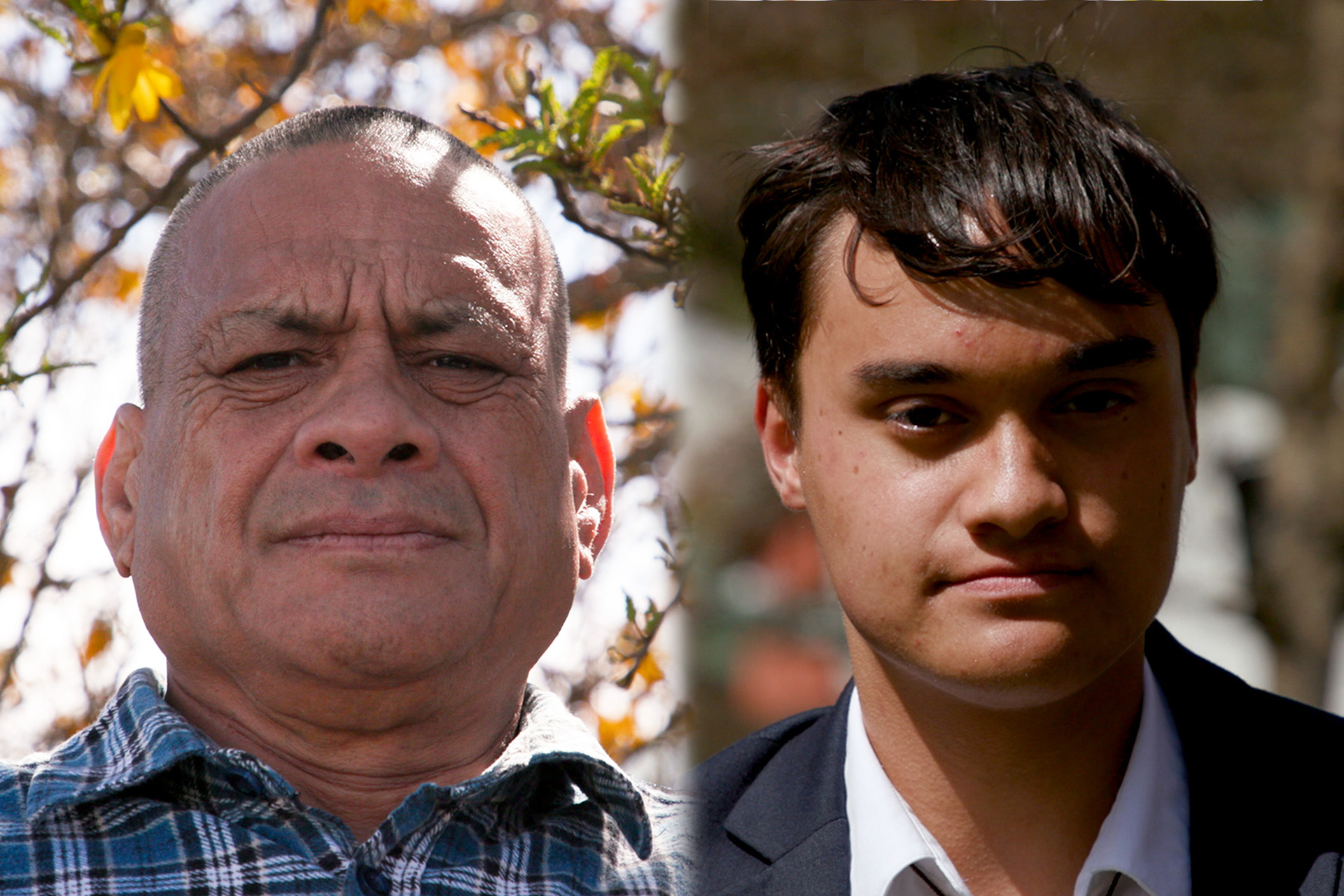We both survived abuse in state care, 45 years apart
Content warning: this story mentions physical, mental and sexual abuse
Around a quarter of a million children, young people and vulnerable adults were abused in care in New Zealand from 1950 to 2019. These are just two stories among the hundreds of thousands.
There’s one memory Ihorangi Reweti-Peters (Ngāti Tuwharetoa, Ngāti Kahungunu) can’t get out of his head: trying to jump out of his school window when a social worker and police officer came to take him into care for the first time. He was 10 years old.
Now 18, he’s been in 14 different care placements and says he was abused in five of them.
For the last five years, the government has run a royal commission of inquiry to investigate abuse in state and faith-based care institutions, and is due to make final recommendations at the end of March 2024.
It’s found that of the 655,000 young people placed in state or religious care since 1950, over a third of them - 250,000 - were abused, physically, mentally or sexually.
“It hurts me that it happened 45 years before I was born. And it's still happening today,” Ihorangi says.
In one home, he says he was racially and emotionally abused, and felt Pākeha rangatahi in the house were favoured over him.
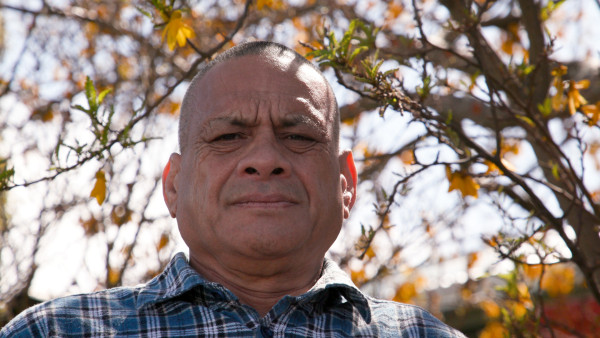
Hohepa Taiaroa was abused in state care in the 1970s, which led him to a life in and out of prison. Photo: Re: News
Hohepa’s story: “When you go to these places, it takes a bit out of you. It takes stuff away from you.”
Hohepa Taiaroa (Ngāti Tuwharetoa, Ngāti Kahungunu), now 64, spent five years in state care in the 1970s.
He had grown up in Rātana Pā near Whanganui, “brought up and surrounded by Māori”.
“Everything we did was Māori, whether it be learning music or going to church or just conversing at the marae.”
But when he was nine years old his parents split up, and he got sent to Wellington to live with his mum.
“I found it a bit hard because Mum had a new family and a new husband. It was a bit hard to try and adjust to a new family, a new life in the city.”
So he started to rebel: petty theft, pinching money, and by the time he was 12 he was stealing cars.
“I guess it was for attention.”
When Hohepa was 13 he was sent to the state-run Kohitere Boys’ Training Centre in Levin, which he describes as “a cross between polytechnic and jail”.
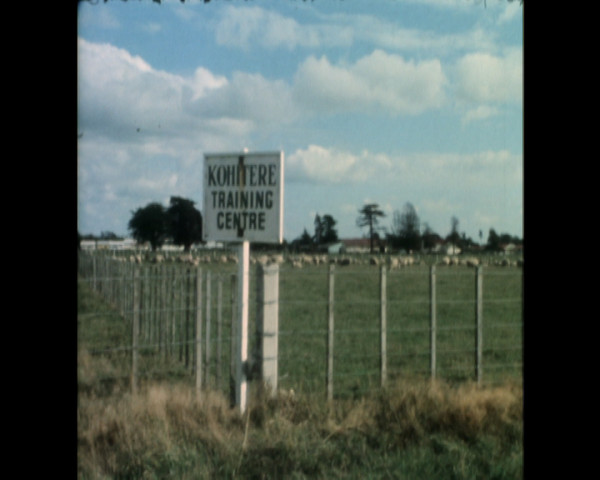
Kohitere Boys Training Centre in Levin, in 1977. Source: TVNZ archive
The first time he had a shower there, he experienced the Kohitere initiation ritual: being brutally beaten by older boys.
“You've got no clothes on, you're in a shower with a bar of soap, no weapons, easy to deal with.”
In a panic, naked and alone at 13 years old, he started yelling out to the guards for help.
“Nobody came. Nobody came. By then I was on my knees, so I fought back. That's all I could do.”
He got a hiding so bad he was in the infirmary for two days. But, he says, “nobody said a thing” - the guards didn’t want to know.
He did not experience sexual assault that day in the shower, but says that is what the older boys were trying to do: “there were some predators in there”.
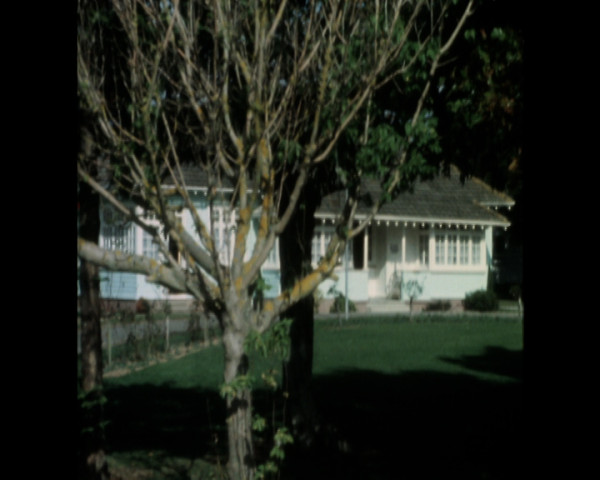
Kohitere Boys Training Centre in Levin, in 1977. Source: TVNZ archive
The inquiry has found the care system created a pipeline to prison
One in three young people placed in residential care by the state between 1950 and 1999 went on to serve a prison sentence.
For Māori that number is even higher, with nearly 42% ending up in prison.
For comparison, people who didn’t go through state care in that same time period only had an 8% chance of going to prison.
Hohepa spent over eight years in prison, and says his experience in state care was a stepping stone.
“Everybody goes, ‘Ooh that's a bad boy’. But they don't know you. They don't know what caused it.”
After Kohitere he went to Waikeria Borstal, a type of youth detention centre, and almost as soon as he came out, he went back in, ending up in Waikeria Prison at age 18.
Stealing was his way of getting back at society, he says.
“It was my way of trying to release my anger or get back at society for what they did to me - not listening.”
He says he was never proud of stealing, and was angry at himself as well as at the system.
“But the confusion and anger just clouded my mind so that I couldn't think, couldn’t act. From boys' homes to prison, it takes a lot out of you.”
‘I reached out for help and nobody was there’
He says the experience of reaching out for help, like he did while being beaten up on his first date at Kohitere, and then being ignored, can lead young people to despise the system.
“You tend to turn around and start hating those people that are of authority, those people that put you down.”
“I blamed everybody actually, to be honest, because as a child, I reached out for help and nobody was there.”
Hohepa says the boys in care never had the support they needed.
“We never had counselling. We never had service workers, we never had anybody that showed us the way or taught us a better way. All we got was some army guy teaching us how to do woodwork in the bloody carpentry shop.”
And so they learnt to shut down.
“When you get hurt, you start building a wall, building blocks around you. And the more you get hurt, the higher that wall goes, and the higher that wall goes, the tighter you become inside you. No one else to trust but you.”
By the time he got into borstal, he says “my wall was just past my neck, and rising”.
The wall was essential to protect himself as a teenager who was always at risk of being beaten up. But it’s impacted his ability to form relationships for the rest of his life.
“It's good in those situations. But it's not so good when you're trying to live life as a person, as a man or woman in society.”
‘Back here again, bro?’
The same boys he met in state care would pop up over and over again across his lifetime - first in borstal, then in prison.
“When you get to see them, they're like old mates, or cousins down the road, but we're in jail. You get the same old questions, ‘Back here again, bro? What for this time?’”
Knowing that one third of young people put into state care also ended up in prison, just like he did, makes Hohepa feel “gutted”.
“Gutted because I didn't have the tools to make it right. I didn't have the answers to help me. Gutted because it's taken this long for me to find answers.”
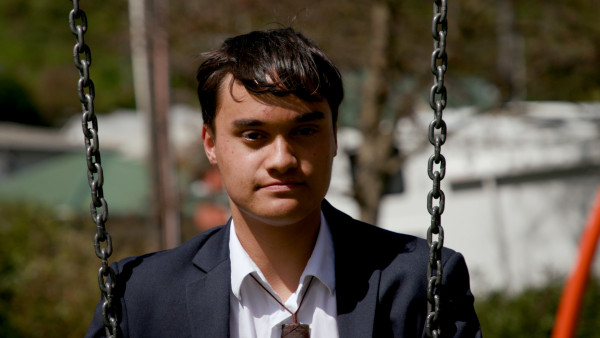
Ihorangi Reweti-Peters wants to see mandatory mental health support for all young people placed in state care. Photo: Re: News
‘It's shocking how many placements I have had’
Ihorangi says when he was born, his parents had problems, so when he was seven months old he went to live with his grandparents, where he lived until he was 10.
“My grandparents have always been my supporters,” he says. “They're still supporting me.”
But the trauma he experienced in early months as a baby impacted him, and led him to outbursts against his grandparents.
“I had very bad behavioural and mental health problems. I was very anxious and very angry and the trauma that I have experienced from living in my parents’ care led me to abusing the people that I loved the most, which were my grandparents.”
That led up to the day he tried to jump out a window at school to get away from the social worker and police officer who had come to take him into care.
Over the next few years he was put in 14 different placements, with one being as short as 22 hours.
The physical, mental and racial abuse he experienced over the following years added to his anger.
“It was the trauma that led me to getting really angry with the people I loved the most. And I think the abuse that I faced in the placements also built up my anger and led me to be aggressive and hurt people.”
But he says no one asked him why he was angry.
“I think if someone did ask why I was angry, I would have been able to share what I thought.”
“I look back at my story today and I'm like, It's shocking how many placements I have had and how many placements I have been abused. And it’s real. It hurts.”
‘As a Māori, there was nobody there for me’
State care broke Hohepa’s connection to te ao Māori, and it’s taken him decades to work to build it back.
As a child in Rātana Pā, he was surrounded by the reo and culture. But in state care he had nothing.
“As a Māori, there was nobody there for me. The only Māori was the brother in the next room. As for tikanga, you learned it by yourself. You pick it up and you learn it by yourself.
“So as a person that's been downtrodden and abused by the system, and by the people that are in the system that are [supposed] to look after you, then that's when you start to become a warrior and do your own stuff.”
“You tend to start to live how they want you to live, and to be how they want you to be.”
He had to “walk through life under the pretence of being assimilated”, he says. “And I didn't even know, until I got a bit older and learned a bit more about my own culture and about the way that we were supposed to live: as a whānau, with whānau.”
The inquiry’s interim report has found “racist attitudes and a disregard of Māori identity compounded the harm experienced by Māori placed in care”.
Māori children were “disconnected from their culture and struggled to build a sense of identity and belonging”, the report found.
It says a 1978 report into a boys’ home found “Māori were put down and treated with contempt. There was no effort to treat those children as human beings”.
What will change?
Hohepa and Ihorangi met on a cold but sunny Wellington day.
They were 45 years apart in age, but with so much in common, both have testified as part of the inquiry into abuse in care.
The inquiry has so far heard nearly 3000 people’s experiences.
It’s a staggering number, particularly when you consider Hohepa and Ihorangi’s pain and realise they are just two out of the quarter million the inquiry estimates were abused.
The scale of the abuse has meant the deadline for the inquiry’s final report has had to be extended multiple times.
It’s now due to deliver its final report at the end of March 2024.
“The scale of abuse is beyond what anyone had ever imagined at the start of this inquiry,” inquiry chair Coral Shaw said in 2023.
Both Ihorangi and Hohepa are hopeful that despite decades in which the same story played out over and over again, the inquiry will make a difference.
Ihorangi is advocating for greater access to mental health and counselling support for all young people who go through care.
In terms of a government apology, Ihorangi says an apology won’t go far enough, but it would be good to receive one.
“But actions speak louder than words.”
If you want to get in touch with the author of this article, email anna@renews.co.nz
Where to get help:
Survivors of abuse in care:
- Survivor Experiences Service: a service for people who experienced abuse in care to share their experiences. Survivors and whānau can call 0800 456 090, email contact@survivorexperiences.govt.nz, or text 8328
- The Abuse in Care inquiry has a support line: 0800 222 727 or text 8185 during weekday hours.
- Male Survivors of Sexual Abuse Aotearoa New Zealand: Support services for male survivors of sexual abuse. Refer to website for the support organisation nearest to you.
- SNAP Aotearoa New Zealand - Survivors Network of those Abused by Priests Providing peer support for women and men wounded by religious and institutional authorities (priests, ministers, bishops, deacons, nuns, coaches, teachers, and others)
- Voyce – Whakarongo mai: advocacy service for children in care. 0800 4VOYCE (0800 486 923)
Mental health helplines:
- 1737: The nationwide, 24/7 mental health support line. Call or text 1737 to speak to a trained counsellor.
- Suicide Crisis Line: Free call 0508 TAUTOKO or 0508 828 865. Nationwide 24/7 support line operated by experienced counsellors with advanced suicide prevention training.
- Youthline: Free call 0800 376 633, free text 234. Nationwide service focused on supporting young people.\
Sexual assault helplines
- 24 hour nationwide helpline Safe2Talk: 0800 044 334
- 24/7 helpline Wellington Sexual Abuse HELP: 04 801 6655
- RapeCrisis directory to services across the country: www.rapecrisisnz.org.nz
- (Not for crisis support): For education programs around preventing sexual violence: RespectEd
- Male Survivors of Sexual Abuse Aotearoa: www.malesurvivor.nz
- To report your experience to the police, call 111 or the non-emergency line 105
More stories:
I just got out of prison and have to rebuild my life with $350
Here in New Zealand, over a third of people who leave prison are back inside within two years.
‘It's hard without your family’: Teens tell us about living on Auckland's streets
Young and The Reckless is a new documentary about teens who lived on Auckland’s streets.
Startling link between state care and prison in NZ
State care and ending up in prison is directly linked, according to new data.
